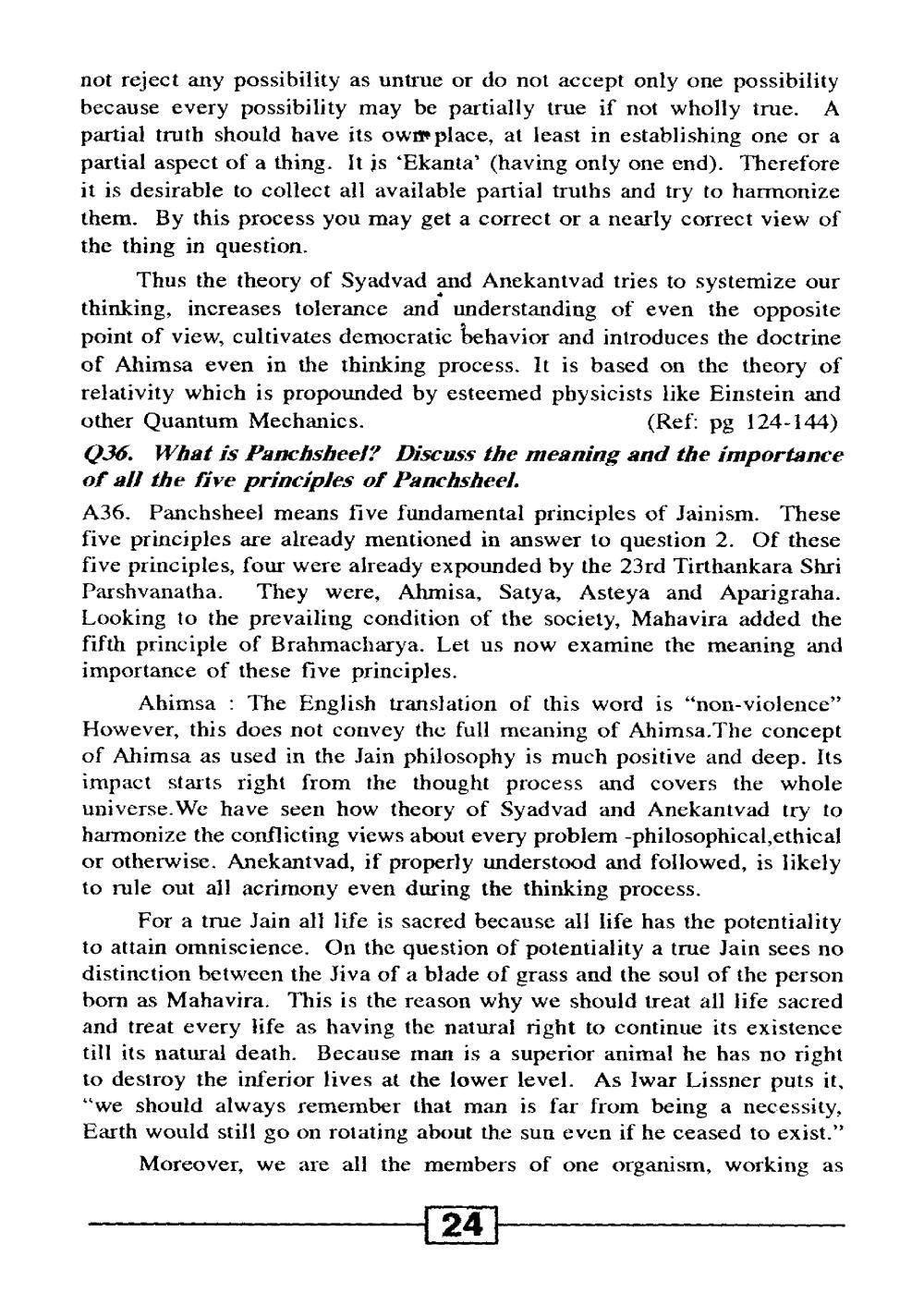________________
not reject any possibility as untrue or do not accept only one possibility because every possibility may be partially true if not wholly true. A partial truth should have its own place, at least in establishing one or a partial aspect of a thing. It is 'Ekanta' (having only one end). Therefore it is desirable to collect all available partial truths and try to harmonize them. By this process you may get a correct or a nearly correct view of the thing in question.
Thus the theory of Syadvad and Anekantvad tries to systemize our thinking, increases tolerance and understanding of even the opposite point of view, cultivates democratic behavior and introduces the doctrine of Ahimsa even in the thinking process. It is based on the theory of relativity which is propounded by esteemed physicists like Einstein and other Quantum Mechanics.
(Ref: pg 124-144) 036. What is Panchsheel? Discuss the meaning and the importance of all the five principles of Panchsheel. A36. Panchsheel means five fundamental principles of Jainism. These five principles are already mentioned in answer to question 2. Of these five principles, four were already expounded by the 23rd Tirthankara Shri Parshvanatha. They were, Ahmisa, Satya, Asteya and Aparigraha. Looking to the prevailing condition of the society, Mahavira added the fifth principle of Brahmacharya. Let us now examine the meaning and importance of these five principles.
Ahimsa : The English translation of this word is “non-violence" However, this does not convey the full meaning of Ahimsa. The concept of Ahimsa as used in the Jain philosophy is much positive and deep. Its impact starts right from the thought process and covers the whole universe. We have seen how theory of Syadvad and Anekantvad try to harmonize the conflicting views about every problem -philosophical, ethical or otherwise. Anekantvad, if properly understood and followed, is likely to rule out all acrimony even during the thinking process.
For a true Jain all life is sacred because all life has the potentiality to attain omniscience. On the question of potentiality a true Jain sees no distinction between the Jiva of a blade of grass and the soul of the person born as Mahavira. This is the reason why we should treat all life sacred and treat every life as having the natural right to continue its existence till its natural death. Because man is a superior animal he has no right to destroy the inferior lives at the lower level. As lwar Lissner puts it, "we should always remember that man is far from being a necessity, Earth would still go on rotating about the sun even if he ceased to exist."
Moreover, we are all the members of one organism, working as
24




